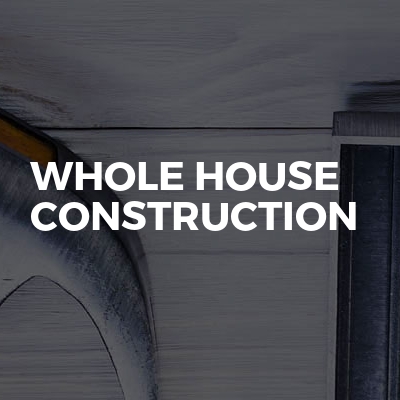Garage Conversions in Nailsworth
Search Garage Conversions in places nearby
Understanding Garage Conversions in Nailsworth
Garage conversions in Nailsworth have become increasingly popular as homeowners seek to maximise their living space without the hassle of moving. This charming town in Gloucestershire offers a unique blend of rural beauty and modern convenience, making it an ideal location for such transformations. In this article, we'll explore the ins and outs of converting a garage in Nailsworth, covering everything from planning permissions to design ideas.
The Benefits of Garage Conversions
Converting a garage can offer numerous advantages. Firstly, it provides additional living space without the need for an extension, which can be both costly and time-consuming. This extra space can be used for a variety of purposes, such as a home office, playroom, or even a guest bedroom. Moreover, a well-executed garage conversion can significantly increase the value of your property, making it a wise investment.
Cost-Effective Solution
Compared to building an extension, garage conversions are generally more affordable. The existing structure means that major construction work is often unnecessary, reducing both labour and material costs. Additionally, the process is usually quicker, minimising disruption to your daily life.
Increased Property Value
A garage conversion can add significant value to your home. By transforming underutilised space into a functional area, you enhance the overall appeal of your property. Potential buyers often view additional living space as a major selling point, which can lead to a higher resale value.
Planning Permission and Regulations
Before embarking on a garage conversion in Nailsworth, it's essential to understand the planning permissions and regulations involved. While some conversions may not require planning permission, others might, depending on the scope of the project and local regulations.
Permitted Development Rights
In many cases, garage conversions fall under permitted development rights, meaning you won't need formal planning permission. However, it's crucial to check with the local council to ensure your project complies with all necessary regulations. Factors such as the size of the conversion and its impact on the surrounding area can influence whether permission is required.
Building Regulations
Regardless of planning permission, all garage conversions must adhere to building regulations. These standards ensure that the conversion is safe, energy-efficient, and suitable for habitation. Key areas covered by building regulations include structural integrity, fire safety, insulation, and ventilation.
Design Ideas for Garage Conversions
The possibilities for garage conversions are virtually endless. Whether you're looking to create a cosy retreat or a functional workspace, there are numerous design options to consider.
Home Office
With the rise of remote working, a home office is a popular choice for garage conversions. This dedicated space allows you to separate work from home life, boosting productivity and focus. Consider incorporating ample natural light, ergonomic furniture, and plenty of storage to create an efficient and comfortable workspace.
Guest Bedroom
If you frequently host visitors, converting your garage into a guest bedroom can be an excellent solution. Ensure the space is inviting and comfortable by adding cosy furnishings, soft lighting, and personal touches. An en-suite bathroom can further enhance the guest experience.
Playroom
For families with young children, a playroom can be a valuable addition. This dedicated space allows kids to play freely without cluttering the main living areas. Incorporate bright colours, durable flooring, and plenty of storage for toys and games.
Choosing the Right Professionals
While some homeowners may opt for a DIY approach, hiring experienced professionals can ensure a smooth and successful garage conversion. From architects to builders, selecting the right team is crucial for achieving your desired outcome.
Architects and Designers
An architect or designer can help you plan the layout and aesthetics of your conversion. They can provide valuable insights into maximising space and ensuring the design complements the rest of your home.
Builders and Contractors
Choosing a reputable builder or contractor is essential for the construction phase. Look for professionals with experience in garage conversions and check references or reviews to ensure quality workmanship.
Budgeting for Your Garage Conversion
Setting a realistic budget is a critical step in the garage conversion process. Understanding the costs involved and planning accordingly can help prevent unexpected expenses and ensure your project stays on track.
Cost Breakdown
The cost of a garage conversion can vary widely based on factors such as size, design complexity, and materials used. Common expenses include structural modifications, insulation, flooring, and electrical work. It's important to obtain detailed quotes from contractors to understand the full scope of costs.
Financing Options
If your budget is tight, consider exploring financing options. Home improvement loans or remortgaging can provide the necessary funds to complete your conversion without compromising on quality.
Common Challenges and Solutions
While garage conversions offer many benefits, they can also present challenges. Being aware of potential issues and their solutions can help ensure a successful project.
Space Constraints
Garages are often limited in size, which can pose challenges when designing a functional space. To overcome this, focus on smart storage solutions and multi-functional furniture to maximise the available area.
Lighting and Ventilation
Garages typically have limited natural light and ventilation. Address this by incorporating windows, skylights, or glass doors to brighten the space. Additionally, ensure adequate ventilation to maintain air quality and comfort.
Environmental Considerations
As sustainability becomes increasingly important, consider incorporating eco-friendly elements into your garage conversion. This not only benefits the environment but can also reduce energy costs and enhance the comfort of your space.
Insulation and Energy Efficiency
Proper insulation is crucial for maintaining a comfortable temperature and reducing energy consumption. Consider using sustainable materials and energy-efficient systems to minimise your environmental impact.
Renewable Energy Sources
Incorporating renewable energy sources, such as solar panels, can further enhance the sustainability of your conversion. These systems can provide clean energy for heating, lighting, and other needs, reducing reliance on traditional power sources.
Legal and Insurance Considerations
Before starting your garage conversion, it's important to address any legal and insurance considerations. This ensures that your project is compliant and protected against potential risks.
Legal Requirements
Ensure that your conversion complies with all relevant legal requirements, including planning permissions and building regulations. Failure to do so can result in fines or the need to reverse unauthorised work.
Insurance Coverage
Check with your insurance provider to ensure that your policy covers the conversion. You may need to update your coverage to reflect the increased value and changes to your property.
Frequently Asked Questions
- Do I need planning permission for a garage conversion in Nailsworth? In many cases, garage conversions fall under permitted development rights, but it's essential to check with the local council.
- How much does a garage conversion typically cost? Costs can vary widely, but a basic conversion might start around £10,000, with more complex projects costing significantly more.
- How long does a garage conversion take? The timeline can vary, but most conversions take between 4 to 6 weeks to complete.
- Can I convert a detached garage? Yes, detached garages can be converted, though they may require additional considerations for utilities and access.
- Will a garage conversion add value to my home? Yes, a well-executed conversion can increase your property's value by providing additional living space.
- What are the building regulations for garage conversions? Building regulations cover areas such as structural integrity, insulation, and fire safety. It's important to ensure compliance with these standards.
Final Thoughts on Garage Conversions in Nailsworth
Garage conversions in Nailsworth offer a fantastic opportunity to enhance your living space and increase your property's value. By understanding the benefits, planning permissions, and design possibilities, you can embark on a successful conversion project that meets your needs and complements your home. Whether you're creating a home office, guest bedroom, or playroom, the possibilities are endless. With careful planning and the right professionals, your garage conversion can become a valuable and cherished part of your home.











